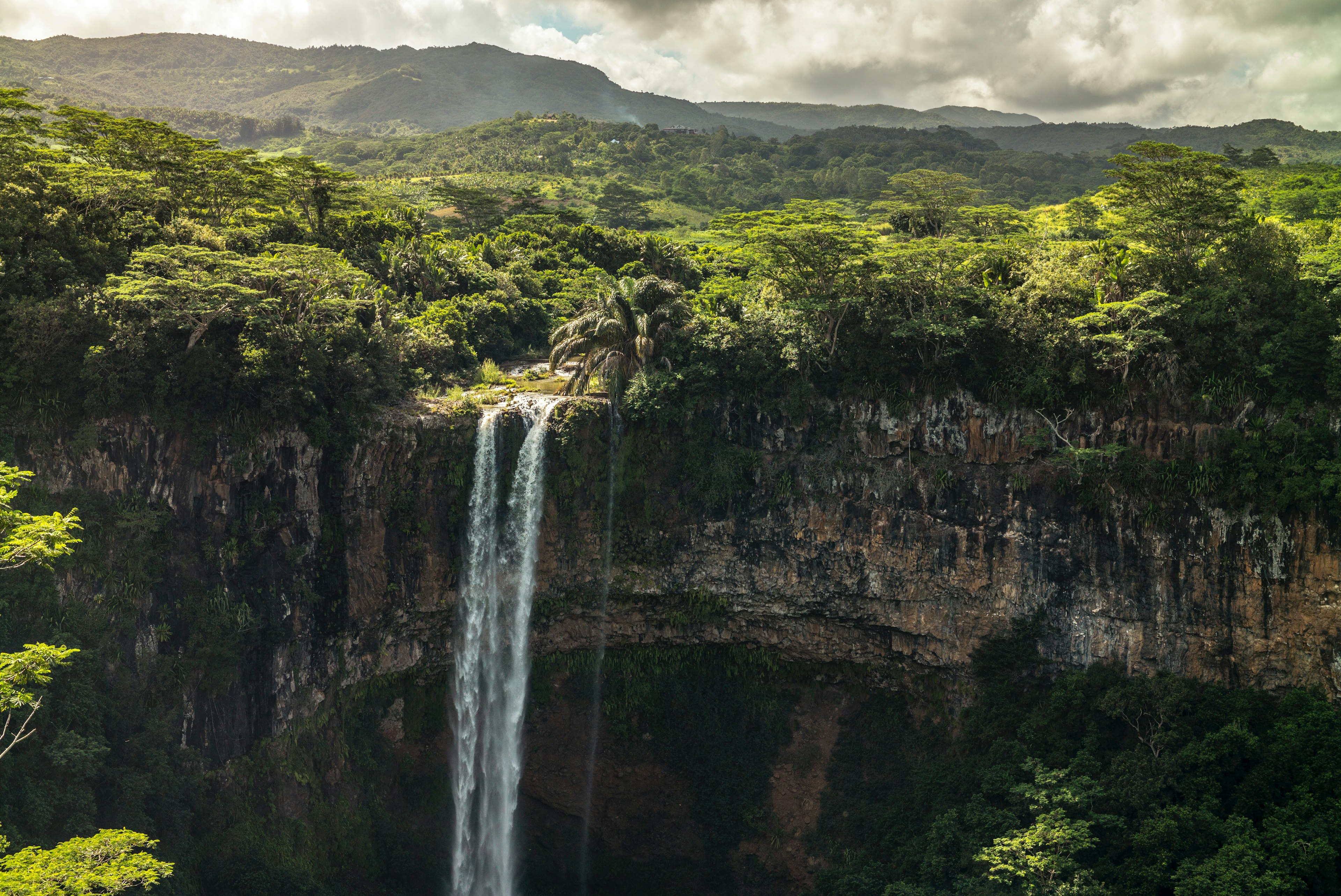

Sun-soaked Mauritius celebrated 50 years of independence in 2018. leoks / Shutterstock
It’s easy to assume that a holiday to Mauritius comes with a hefty price tag. And while that’s true at its legion of upscale resorts, it’s possible to enjoy this island paradise on a budget. Here are our top tips.
When to go
It pays to be flexible. You’ll get the best prices during the low season (May to September, when temperatures are lower but still tropical), with the exception being European school holidays. In general, high season runs from around December to February, with prices soaring over Christmas and New Year. A compromise could be shoulder season (March, April, October and November). Accommodation prices are slightly lower than high season, and there are fewer visitors but temperatures are still high.
Where to stay
Mauritius is synonymous with top-end, opulent hotels and resorts. But skip these and go for a mid-range yet still lovely option like Veranda Resorts, whose properties such as those in Grand Baie and Tamarin offer contemporary rooms, friendly staff and beautiful grounds in gorgeous beachfront settings. Cheaper still is renting a holiday apartment or villa, especially if there are several people in your group. As well as the likes of AirBnb, a few of the larger agencies include CG Villas, Ropsen and Grand Bay Travel & Tours. Another characterful option is Mauritius' guesthouses, managed by locals with genuine hospitality; there are several in Pointe d'Esny.

What to eat
You needn’t spend a fortune on dining in Mauritius, as street food and cheap eats are in plentiful supply. As well as delicious local fare, you can also pick up Indian, French and Chinese treats. Roadside stalls serve biryani and faratas (unleavened flaky flour pancakes), while inexpensive snacks such as gâteaux piments (chilli cakes), rotis, samosas, bhajas (fried balls of besan dough with herbs or onion), dhal puris (lentil pancakes) and boulettes (tiny steamed Chinese dumplings) are dished up at markets, public beaches and in the capital, Port Louis. If you’re in Port Louis, consider a street food tour with Taste Buddies, where an in-the-know guide will show you round the city’s most salivating spots.

Activities
There’s a plethora of land and water-based activities available in Mauritius, with options ranging from catamaran cruises, diving and surfing to golf and mountain-biking. Happily, two of Mauritius' finest activities are completely free. There are stunning beaches throughout the island, particularly along the east coast with long, absurdly photogenic, often deserted stretches. Wonderful hiking spots also abound: Black River Gorges National Park has the island's most beautiful scenery and well-maintained, clearly signposted trails through forests, waterfalls and gorges, while climbing dramatic outcrop Le Morne brings extraordinary views. Bear in mind though that you’re probably best off hiring a guide for any major hikes.
Festivals are a wonderful way to jazz up a visit to Mauritius and soak up some island culture. The biggest, in February or March, is the 500,000-strong Hindu pilgrimage to the sacred lake of Grand Bassin. March coincides with Holi celebrations, October is time for Divali, and Teemeedee in December or January sees Hindus fire-walking.
While diving is one of Mauritius’ big draws, it’s also expensive. Consider snorkelling instead: it's a great way to explore underwater with minimal equipment and without the big price tag. Even the shallowest reefs off Mauritius are home to fascinating marine life. Rental gear is easily available from dive centres, boat operators and hotels, or catamaran cruises will often include snorkelling in the deal.
Getting there and around
Numerous carriers fly direct to Mauritius. Air Mauritius is the excellent national carrier; they have a decent international network and are currently upgrading their economy cabins.
Save money by travelling by bus, which is cheap, fun and usually an easy and reliable way to get around. There is no countrywide service; instead there are several bus companies and individual operators. Be sure to speak to locals, who are the best and most accurate source of information, as bus services don't publish timetables.
You might also like these:
Beyond the beaches: exploring Mauritius
A taste of Mauritius: the food lover's guide
Which of East Africa's Indian Ocean islands is for you?
Tom travelled to Mauritius with assistance from Veranda Resorts and Air Mauritius. Lonely Planet contributors do not accept freebies in exchange for positive coverage.
Explore related stories




 ActivitiesThe top things to do in Mauritius, from beaches to botanical gardens
ActivitiesThe top things to do in Mauritius, from beaches to botanical gardensJan 8, 2022 • 8 min read


 Digital NomadHas your job gone remote? These countries are welcoming digital nomads
Digital NomadHas your job gone remote? These countries are welcoming digital nomadsJul 31, 2020 • 12 min read


